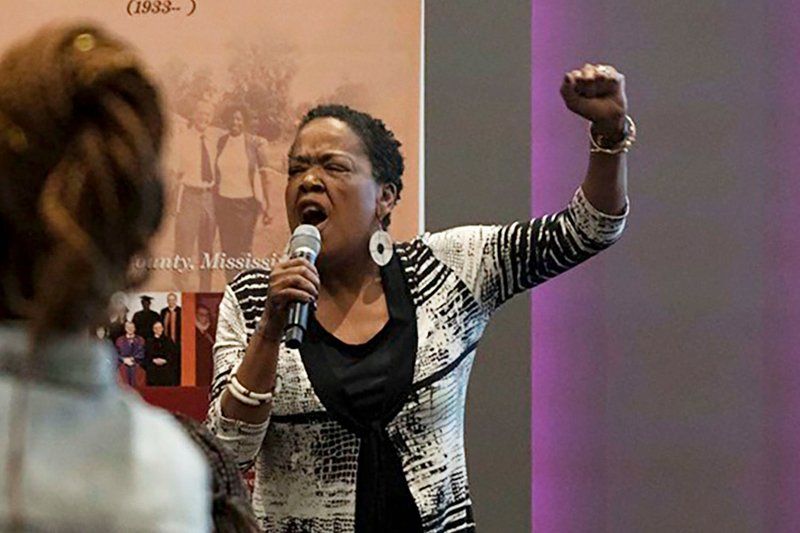Jaribu Hill didn't opt for law school until her early 40s. She'd been a singer, actress, teacher and labor organizer before learning that a college classmate had become head of a group for black female judges.
"I can do that, too," she thought.
Hill has since become a leading civil-rights and workers' rights lawyer in Mississippi and now, at 70, she's part of a nationwide network of attorneys helping women without much money pursue often-costly sexual misconduct cases.
"We're looking for opportunities to lift up women who've never been lifted up," Hill said.
She is among 721 attorneys inspired by the #MeToo movement who have signed up with the Times Up Legal Defense Fund since it launched last year. While the movement burst into the spotlight in October 2017 with celebrities and others accusing powerful men of sexual misconduct, the fund is reaching everyday working women who otherwise wouldn't be able to afford to take their complaints to court.
The Times Up fund, administered by the National Women's Law Center, has received more than 3,670 requests for assistance and has funded 160 cases thanks to $24 million in donations.
The lawyers in its network hail from big law firms and small practices in 45 states. One is a Harvard Law School graduate who has represented truck drivers and laundry workers. Another is a Washington, D.C., attorney whose approach to discrimination cases evolved after losing his vision a decade ago.
The law center's president, Fatima Goss Graves, praised their commitment.
"Workers who experience sexual harassment and retaliation across all industries now know there are attorneys who have their back," she said.
Hill was the first lawyer in Mississippi to receive support from the Times Up fund. The money helped her with a lawsuit from a black woman in her mid-50s who says she was sexually harassed by a co-worker at a regional bus line, then fired after complaining to her superiors.
Hill said the case will go to trial in February unless the bus company offers a "meaningful settlement."
The plaintiff, Sandra Norman, "has always been a victim of the system," Hill said. "But we should never assume just because someone's been beaten down, they don't have the courage to tell their story."
Washington lawyer David Shaffer has challenged several federal law enforcement agencies -- including the Secret Service -- in civil-rights class-action lawsuits from employees.
With help from the Time's Up fund, he's representing 16 female FBI recruits who allege gender discrimination. They sued in May over sexual harassment and unfair performance evaluations.
Childhood memories of inequality stuck with Kathryn Youker as she started representing victims of racial and gender discrimination.
As a white child in the majority Hispanic city of Harlingen, Texas, "I saw inequality in a very stark and racist way," she said. "I always questioned why I had opportunities available to me that my classmates and friends didn't have."
Youker, 44, coordinates labor and employment cases for Texas Rio Grande Legal Aid, which provides free services to thousands of low-income residents and migrant workers.
Philadelphia attorney Robert Vance, who has specialized in employment discrimination cases for four decades, says the fund is allowing him to help harassment victims who never could have paid legal bills on their own.
Vance represented Malin DeVoue, a black woman who was fired as head cook at a Philadelphia hotel after complaining to managers that the hotel's chief engineer was sexually harassing her.
The case was settled in June. The amount DeVoue received hasn't been made public, but Vance said she is happy with the money and relieved to avoid a trial.
"Sexual harassment cases are difficult to do, because clients often have been fired and have no financial resources," Vance said. "The fund is wonderful because you can devote as much time as the case requires."
Eve Cervantez's clients in class-action lawsuits have included pizza delivery drivers, auto mechanics and bank tellers.
With Times Up's support, she's handling sexual harassment complaints that several dozen McDonald's workers in numerous cities filed with the Equal Employment Opportunity Commission.
"The goal is not just about money," said Cervantez, 55. "It's about changing practices going forward so employers treat people fairly."
A Section on 09/30/2019
